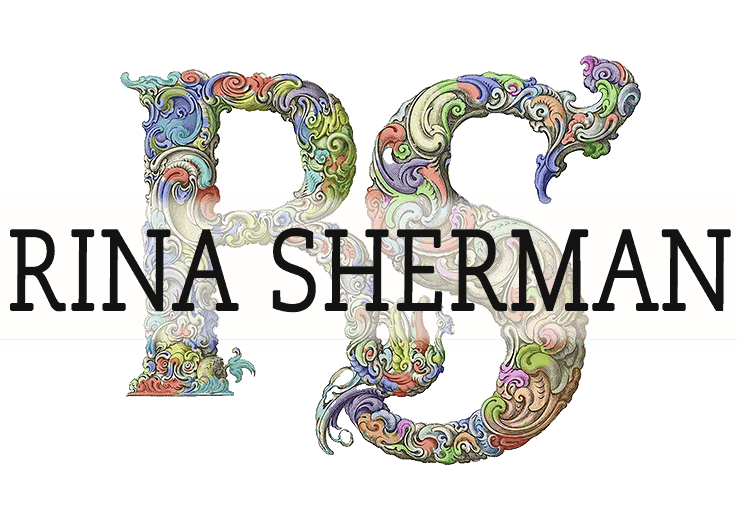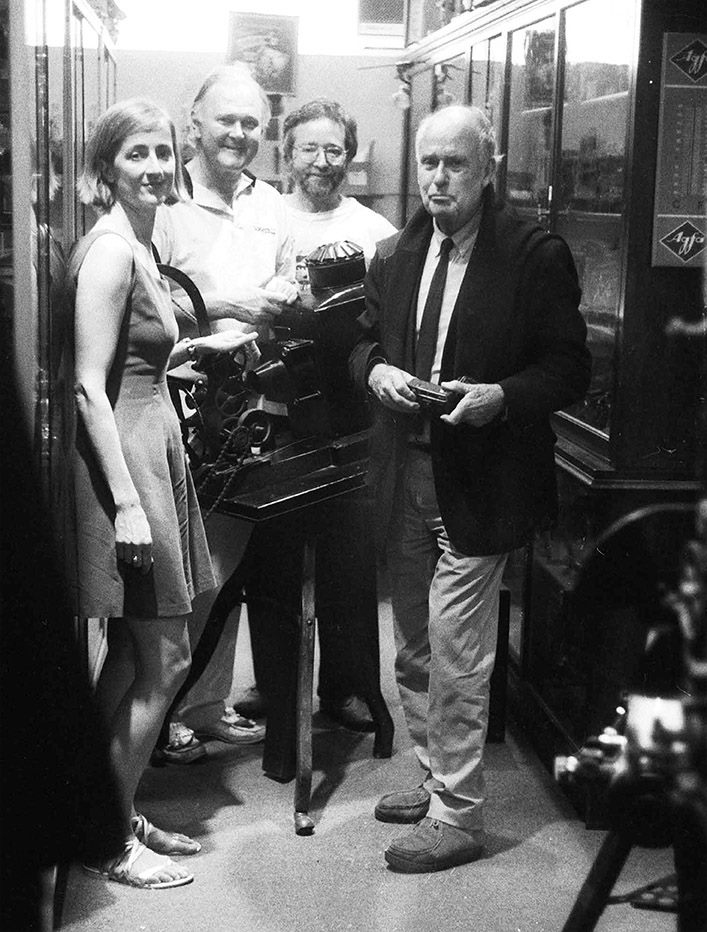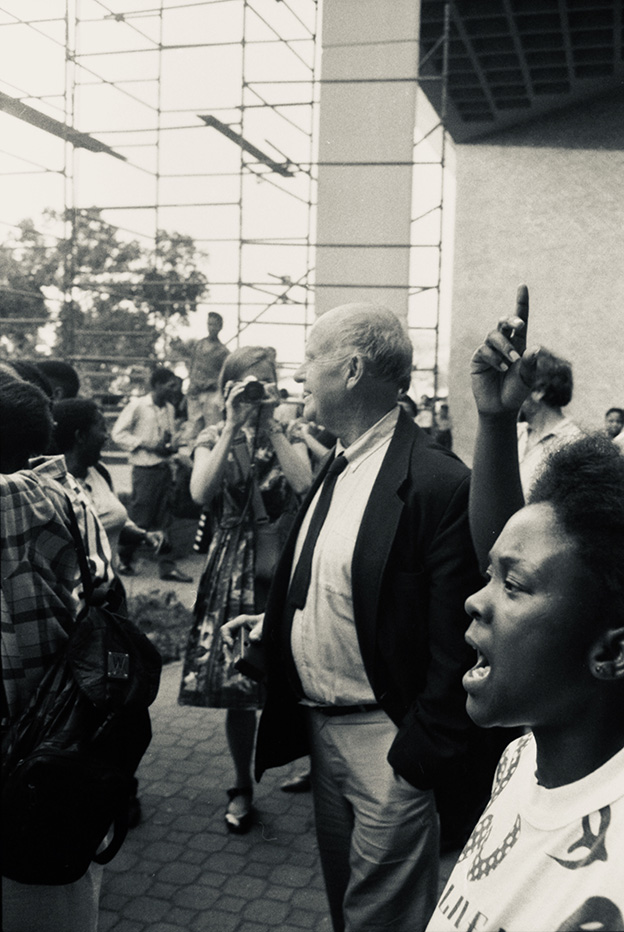Tournée de Jean Rouch en Afrique Australe
Durban, Cape Town, Johannesburg, Windhoek, 1996
Commissaire, Rina Sherman avec l’Alliance Française, l’Institut français en Afrique du Sud, le Centre cultural franco-namibien, l’AUDECAM, Cinémathèque du MAE, la Cinémathèque Française, la Cinémathèque de la Danse, le Ministère des Affaires etrangères, et les universités de Durban Westville, de Natal, de Cape Town, et de Namibie.
The principal objectives of Jean Rouch’s University Tour to Southern Africa were to introduce the work of the filmmaker to film students and scholars in the fields of Anthropology, Dramatic Arts and African Studies through a series of screenings and to allow young filmmakers to spend individual time with Jean Rouch in order to benefit from his experience and share ideas with him
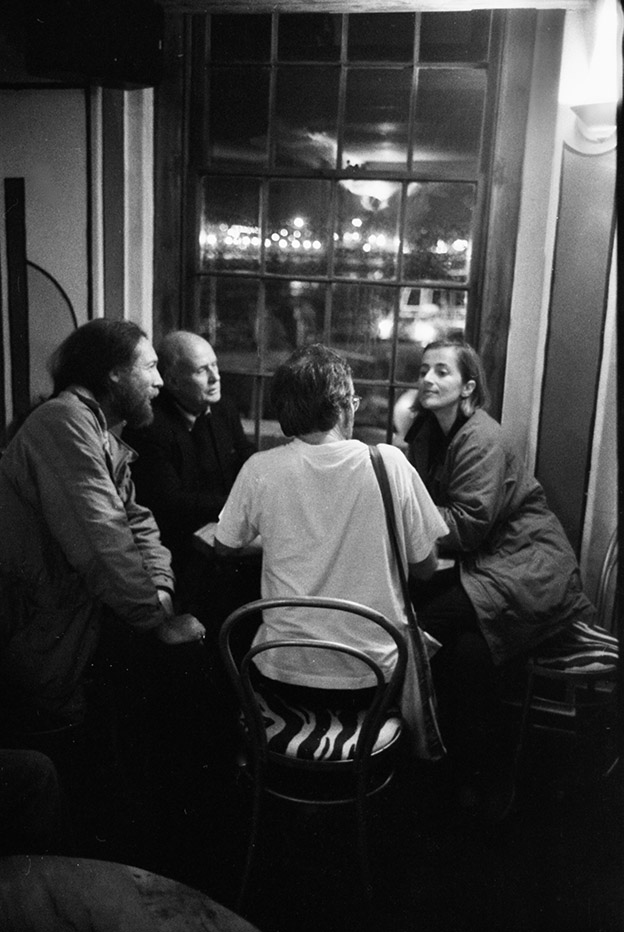
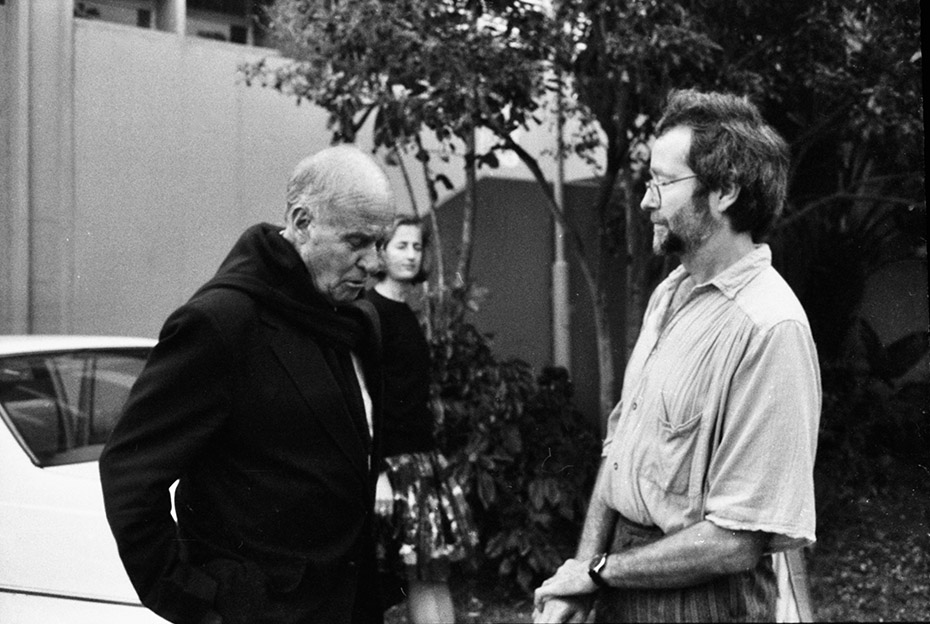
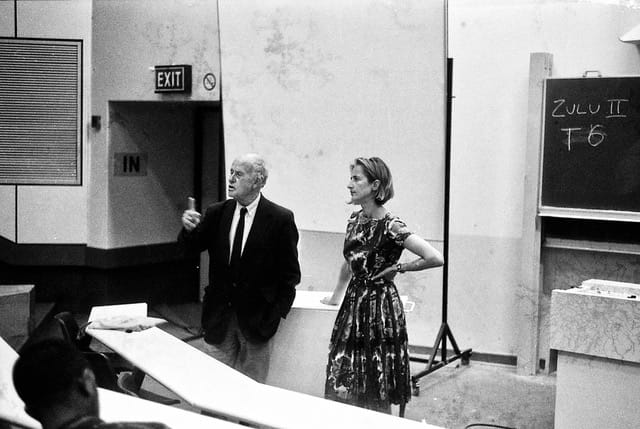
Introduction
History of the Project – An Account of the Tour – A Critical Appraisal – A Perspective
Background
In 1984, I left South Africa for exile in France. Jean Rouch was one of the first people I met upon my arrival in Paris. I had never seenhis films and all I knew about him was a sentence read in a book on Direct Cinema accidentally found in the University of the Witwatersr and Library. According to Jean Rouch it is more interesting to film reality as provoked by the presence of a camera than to attempt to film it as it really is. As a musician and a performance artist, this idea had a profound impact on me. I decided that I wanted to work with Jean Rouch. In 1990 I completed a doctoral thesis under his supervision and subsequently worked with him in various capacities of film making. For many years it has been my wish to introduce Jean Rouch, the person and his work, to young South African filmmakers and scholars.
In April 1994 Anne de Rougemont (Amis du Musee d’Art Moderne et Union des Arts Decoratif de Paris) and Patrick Bensard (Cinematheque de la Danse) visited South Africa and met with Professor Philippe Salazar of the University of Cape Town. The idea to invite Jean Rouch to South Africa emerged from their meeting. Toward the end of 1994 Prof. Salazar presented this idea to Laurent Deveze, the Director of the French Institute in South Africa (IFAS). In June 1995, the French Institute extended an invitation to Jean Rouch and myself to visit Southern Africa. Toward the end of 1994 I spoke to His Excellency, The Ambassador of France in Namibia, Mr. Frederic du Laurens and the Head of the French Mission for Cooperation and Cultural Action in Namibia, Ms Nicole Weil about the project. They expressed immediate interest and in conjunction with the Director of the Franco-Namibian Cultural Centre (FNCC), Mr. Jean-Pierre Clain, it was decided to extend the visit to Nambia and hence give the project a Southern African dimension.
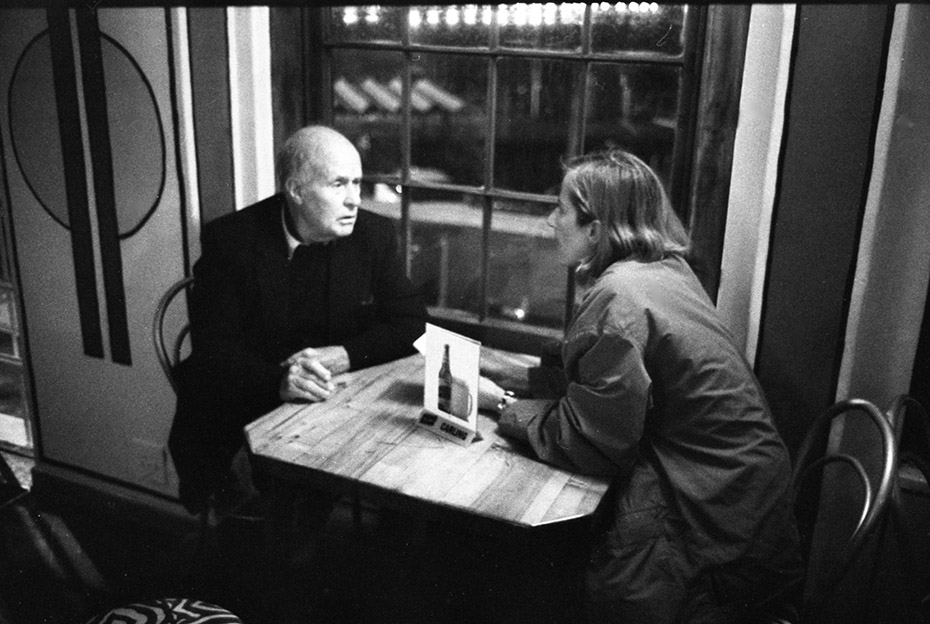
Preparation
With the help of Francoise Foucault of the Comité du Film Ethnographique and longtime collaborator of Jean Rouch, I presented a programme of films to be screened and drew up an academic plan. These were submitted to the various partners. In the interim I had started making contacts with colleagues at other Universities in Southern Africa, especially with Prof. Johan Van Wyk of the Centre for the Study of Southern African Literature and Languages (CSSALL) at the University of Durban-Westville. He responded with immediate enthusiasm and the CSSALL became a valuable organisational and fundraising partner throughout the preparation period of this project. In February 1996, I spent three months in Southern Africa doing research. During this time, I visited the following institutions in view of preparing Jean Rouch’s University Tour: I met with academic staff to discuss the film and academic content of the visit, with technical staff whenever possible to check equipment as well as young filmmakers not affiliated to institutions to inform them of the forthcocming visit. Hereafter follows a list of the principal preliminary contacts made during my trip to Southern Africa:Durban: University of DurbanWestville (UDW):
Johan Van Wyk, Philippe Wade, Jannie Smit, CSSALL Melveen Jackson, Head; Michael Nixon, The Music Department Mr. Dees Naidoo, Audiovisual Media CentreUniversity of Natal, Durban (UND):
In a meeting with Prof. Butler-Adams, Executive Director of the Eastern Seaboard Association of Tertiary Institutions and Prof. Johan VanWyk, the former offered to coordinate our visit in Kwa-Zulu Natal. Dr. Carol Muller, Ethnomusicologist, Dept. of Music. Junaid Ahmed, Filmmaker and ProducerCape Town: University of Cape Town (UCT):
Prof. Philippe Salazar, French Department and Director of the Centre for Rhetoric Studies. Prof. David Coplan, Department of Anthropology, Ren’ee McClean, Department of Music. Rashid Lombard, filmmaker, photographer and Director of Fine Music Radio, a community radio. Abdurrahim Johnstone, Journalist and video poet. Shamiel X, DJ and Director of Bush Radio, a community radio. Freddy Ogterop, Director of the Film Section of the Cape Provincial Library Johannesburg: French Institute in South Africa (IFAS) Alexandre de Clermont_Tonnerre, Film DelegateUniversity of the Witwatersrand (WITS):
Prof. Gerrit Olivier, Dean of Arts Prof. Robert Thornton, Dept. of Social Anthropology His excellency, The Ambassador, Mr. Frederic Baleine du Laurens The French Mission for Cooperation and Cultural Action in Namibia Ms Nicole Weil, Head of the Mission The Franco-Namibian Cultural Centre (FNCC): Mr. Jean-Pierre Clain, Director University of Namibia Mr. Wolfram Hartmann, Head, Department of History Ms Minette Mans, Department of Music National Film Archives of Namibia Mr. Everon Kloppers, Historical Research Subsequent to this research trip, frequent contact was maintained with the above institutions and individuals. The central coordination for the project was run from Paris. This coordination implied constant contact between Paris and the various collaborating partners.and involved:Film Programming
Organisation of copies from the Film Office of the Ministry of Foreign Affairs (MAE), Audecam (Cinematheque of the Ministry of Cooperation) and the Cinematheque de la Danse Scheduling of dates between four cities and five independant university calendars Travel & accommodation organisationPress dossier
Alexandre de Clermont_Tonnerre of IFAS collaborated on coordination between Universities within South Africa. Johan Van Wyk and Philippe Wade of the CSSALL became actively involved in the organisation and fundraising for the project and Jannie Smit was responsable for publicity on the Durban-Westville Campus. Thanks to their efforts, the Centre for Scientific Development (CSD) of the HSRC became an important partner in making this project possible. Prof. Butler_Adams chaired a meeting at which Philippe Wade (CSSALL) and Mikhail Peppas (Natal Technikon) amongst others were present in which coordination for the Kwa-Zulu Natal leg of out tour was organised. Subsequent to this meeting, Mr. Mikhail Peppas and Mr. Alex Holt coordinated with Mr. Fr’ed’eric Dart, the Director of the Alliance Francaise who agreed to host a special screening and a cocktail in honour of Jean Rouch’s visit to Durban. During this period, Alexandre de Clermont_Tonnerre of IFAS brought it to my attention that Prof. Keyan Tomaselli of the Centre for Cultural and Media Studies (CCMS) at the University of Natal would be interested in hosting a screening of Jean Rouch’s films at the Centre and Philippe Wade (CSSALL) coordinated with CCMS to make this possible. Each Institution was responsable for internal organisation organisation and articulation of the programme. I supplied IFAS with a press dossier (photographs & clippings) for South Africa and FNCC for Namibia. The FNCC published a booklet and a poster on Jean Rouch’s visit to Namibia that coincided with the first Namibian Film Festival, organised by the Centre. Subsequent to our visit to Southern Africa IFAS published an article on the tour in their regular magazine. Most universities published an internal pamphlet advertising the event.Partners
I would like to express my sincere thanks and appreciation to the directors of the following institutions without whose support this project would not have been materialised: Ministere des Affaires Etrangeres(MAE), France D.G.R.C.S.T._ Direction de la Communication, Mme Veronique Godard, Chef du Bureau des Documents Audiovisuels. (Posted to NY since) L’Institut Francais en Afrique du Sud (IFAS), Mr. Laurent Deveze, le Directeur; Mr. Alexandre de Clermont_Tonnerre, Responsable de l’audiovisuel. Centre for Scientific Development (CSD), Human Science Research Council(HSRC), South Africa Ministere des Affaires Etrangeres (MAE), France Ambassade de France en Namibie, Son Excellence, L’Ambassader de France en Namibie, Mr. Frederic du Laurens. Ministere des Affaires Etrangeres (MAE), Ministere de la Cooperation, France Mission Francaise pour la Cooperation et l’Action Culturelle en Namibie, Ms Nicole Weil, Chef de Mission. Ministere de la Cooperation, France Centre Culturel Franco-Namibien, Mr. Jean-Pierre Clain, Le Directeur AUDECAM, Cinematheque du Ministere, Ms Lenaour, Director La Cinematheque Francaise La Cinematheque de la Danse, Mr. Patrick Bensard, Le Directeur. The University of Durban-Westville (UDW) The Centre for the Study of Southern African Literature and Language, Prof. Johan Van Wyk, Mr. Philippe Wade, Mr. Jannie Smit The University of Natal, Durban (UND) The Centre for Cultural and Media Studies (CCMS), Prof Keyan and Ruth Tomaselli, Mr. Mikhail Peppas, Mr. Alex Holt, Ms Sue Govender, Ms\Kubeshi Govender, Mr. Andrew Jones, Mrs. Dot Roome. The Eastern Seaboard Association of Tertiary Institutions, Prof. Butler-Adams, Executive Director. Ms. Rekha Jhilmeet. The Alliance Francaise in Durban, Mr. Frederic Dart, The Director. The University of Cape Town (UCT) Centre for Rhetoric Studies, Prof. Philippe Salazar Department of Social Anthropology, Prof. David Coplan The University of the Witwatersrand (WITS) Department of Social Anthropology, Prof. Robert Thornton The University of Namibia The Department of Dramatic Studies, Prof. Bremer. Special Mention I would also like to extend a word of thanks and appreciation to those who made such a special effort to receive us during our stay in Southern Africa. With a special mention to those who entertained us privately: Dr. Carol Muller who accompanied us to the Shembe village in Inanda, North of Durban; Mikhail Peppas, Alex Holt, Richard Bailey who kindly showed us Durban and made it possible for us to meet the South African poet, Prof. Mazisi Kunene of UND and Natal Technikon during the weekend of the 14th and 15th of September; Frederic Michel, the Director of the Alliance Francaise in Cape Town who showed us the magnificent sights of Cape Point; Alexandre de Clermont_Tonnerre who spent the day and the evening of Saturday the 21st of September showing us Newtown and Rosebank in Johannesburg; The Ambassador, Mr. Frederic du Laurens who took us to see the Katutura, one of the townships of Windhoek. It was during these visits that Jean Rouchstarted inventing a scenario for a film he wishes to make in South Africa.Film Programme – Curator’s Note
This programme was designed to be an introduction to Jean Rouch’s work which consists of over a hundred films and covers some forty years of filmmaking. His work ranges from ethnographic to fiction and touches upon almost every possible register between the two disciplines.Les maitres fous » is often considered to be Jean Rouch’s masterpiece. It is an exceptional example at several different levels of the ways in which people represent each other.
« Ambara Dama, enchanter la mort » captures one of the highlights of the Dogon culture, a culture which Jean Rouch and Germaine Dieterlen have been studying for some thirty years and more if one takes into account the heritage left behind by Marcel Griaule whom they both collaborated with.
« Tourou et Bitti, les tambours d’avant » represents an exceptional example of a film on a possession ritual shot as a continuous sequence including effects of editing within a single shot (« plan s’equence »).
« Petit a petit » is Jean Rouch at the lightest of his being; a fiction film which is full of humour and satire and which constantly feeds off a reality with which Jean Rouch is obviously very familiar.
Patrick Bensard of the Cinematheque de la Danse kindly provided us with an extract showing the Savoy Ballroom Champions as filmed by Mura Dehn in « The Spirit Moves ». It includes a breathtaking example of the Lindy Hop which was inspired by Lindenberg who was the first pilot to cross the Atlantic by plane. We screened this film on an impromptu basis and needless to say it was received with joy similar to that it conveys.
Filming the Other: Around Jean Rouch’s Ethnography (Title proposed by Prof. Philippe Salazar)
All screenings were in 16mm optical sound format
Programme 1: 1h35
Les maitres fous by Jean Rouch, 1955, 35 mn, 16 mm, colour, English ST
A study of the Haouka (Songhay) cult practised in the region of Accra. The title of the film refers to the word « haouka » which meansmaster of the wind, master of madness. The film evokes a colonial situation in which the masters, the Europeans were perceived as being crazy. The cult appeared in Songhay possession dances around 1927. It represents the officials of the British and French Armies and Administrations and shows how migrant workers resolve their adaptation to an urban environment through trance. Copy Source: MAE
Ambara Dama, enchanter la mort by Jean Rouch and Germaine Dieterlen, 1974, 60 mn, 16 mm, colour, French Version A year after Ambara’s death, the Mask Society organises a « great Dama » during which the old masks are replaced by the new ones. Some sequences are shot in synchronous slow-motion in order to study the dances and the masks. Copy Source: Audecam, Ministere de la Cooperation, Paris. Programme 2: 1h42
Tourou et Bitti, les tambours d’avant by Jean Rouch 1971, 12 mn, 16 mm, colour, English Version The fourth day of a possession ceremony in the village of Simiri in which the ancient drums, the « Tourou » and the « Bitti » are used. The participants are asking the spirit of the bush to protect their crops against grasshoppers. An old man is dancing when suddenly the orchestra stops playing; him and some other dancers go into trance. Filmed as a continuous sequence shot. Copy Source: MAE
Petit a petit by Jean Rouch, 1975-69, 90 mn, 16 mm, colour, English Version Damoure, Lam and Illo run an import-export company called a Petit with in Ayorou. They decide to build a block of flats and send Damour’e to Paris to see how people live in double-story houses. In the city he discovers the strange ways of living and thinking of the Parisian tribe which he describes in regular letters to his friends. They end up thinking that he has gone mad and send Lam to Paris to check up on him Copy Source: MAE SCHEDULE: 10 to 25 September 1996 DURBAN: 75/09 /15/09
Accommodation : Private Guest House
75/09: Arrival in the afternoon, technical visit checking film projectors, dinner with members of staff and students of CSSALL and CCMS.
12/09: Screening of Programme 1 at UDW: The presentation of Jean Rouch’s films and the seminar at the Centre for the Study of Southern African Literature and Language at the University of Durban-Westville took place as part of a Research Feast Programme thatinvolved all the departments of the university.
On this occasion Jean Rouch and myself where introduced to a representative member of the Centre for Science Research who was one of the active partners making this tour possible.
Evening Screening of Les maitres fous at the Alliance Francaise in Durban followed by a cocktail hosted by the Director Mr. Frederic Dart and organised by Mikhail Peppas and Alex Holt.
13/09: Screenings of Programme 2 and seminar at the Centre for Culture and Media Studies at the University of Natal, Durban (UND). An extensive question and answer session with students followed the screening of Jean Rouch’s films.
14/09 Visit to Shembe village, Inanda. Dr. Carol Muller, Ethnomusicologist at the Department of Music of UND accompanied us on a day trip to the village of the Nazarite Baptist Church in Inanda.
15/09: Visit of Durban (Statue of Pessoa). Mikhail Peppas, Richard Bailey and Alex Holt showed us around Durban, the harbour and several historicalsights.
CAPE TOWN: 15/75/09
Accommodation: Visiting Lecturers’ Appartments, UCT
16/09: Courtesy visit to the Consul de France in Cape Town, Mr. Claude Berlioz, Screening seminar of Programme 1 at UCT, Centre for Rhetoric Studies.
The screenings and debate hosted by Professor Philippe Salazar involved UCT students of various disciplines as well as cinephiles such as Freddy Ogterop of the Cape Provincial Library and Abdurrahim Johnstone, video poet and journalist.
17/09: Screening seminar of Programme 2, under the auspices of the Dept. of Social Anthropology, Prof. David Coplan.
75/09: Visit to Cape Point and Groot Constantia Homestead. Frederic Michel, the Director of the Alliance Francaise in Cape Town accompanied us on a day trip to The Cape of Good Hope.
JOHANNESBURG: 75/22/09
Accomodation: University Residence, WITS
19/09: Screening at the Newtown Film School: Alexandre de Clermont-Tonnerre arranged a screening of Jean Rouch’s films at the Newtown Film School, an independant film school in Johannesburg.
Lunch WITS Club hosted by Prof. Robert Thornton.
Screening seminar at WITS hosted by Prof. Robert Thorton involved students from the Depertments of Anthropology, Drama and History. 20/09: am. Seminar at the Dept. of Anthropology with staff members and students of the Departments of Anthropology, Drama and History. Jean Rouch made an expose’ of his research and career itinerary.
Screening seminar at WITS hosted by Prof. Robert Thornton.
21/09: Visit of Newtown and Rosebank with Alexandre de Clermont-Tonnerre.
WINDHOEK: 22/25/09
Accommodation: Ambassador’s Residence
Mr. Jean-Pierre Clain, Director of the Franco-Namibian Cultural Centre and his assistant Ebba organised an extensive programme for our short stay in Windhoek.
22/09: Screening of young filmmakers’ films, FNCC. This programme involved filmmakers of the local film association showing us their films followed by a discussion of each film.
23/09: Visit to National Film Archives, Mr. Everon Kloppers of the National Archives showed us several of the films John Marshall made on the Bushmen of the Kalahari desert. Screening Progr. 1 to filmmakers (FNCC). Jean Rouch’s films were in turn showed to the young filmmakers followed by a discussion.
24/09: am. Screening at the University of Namibia to Drama, Arts and History students hosted by the Departments of Fine Arts and Drama. The students responded very positively to Les maitres fous and many who missed the event requested an extra screening.
Mme Nicole Weil hosted a lunch in the presence of the Ambassador with members of her staff, filmmakers and staff members of the National Archives.
In the afternoon Jean Rouch met with young filmmakers on an individual basis discussing his work and issues related to his research as well their ideas.
Screening of Programme 2 at the National Theatre of Namibia. A large and varied audience attented this screening ofPetit a petit. At the end of a series of questions an elderly African gentleman raised his hand to speak and said: « I am very glad that you brought this film to Namibia. It is a film that brings people together. That is what we need here. »
25/09: Visit of Windhoek. The Ambassador, Mr. Frederic du Laurens accompanied Jean Rouch and myself on a visit to Katatura. Evaluation
Hereafter follows extracts of elements provided to our partners during the preparatory phase of the tour. I include it here in oder to provide a context for the evaluation of the project as a whole.
Filming the Other: Around Jean Rouch’s Ethnography
Keynote:
Jean Rouch would like to meet and exchange ideas with young film makers from Southern Africa. Film presentations should be informal so as to allow easy contact between the film maker and members of the audience.
Both Jean Rouch and Rina Sherman feel strongly about a film training initiative being an integral part of this trip. University Departments and Community &
Training Centres should be encouraged to inform young film makers of the film screenings.
Furthermore, we feel it is important that the screenings of these films reach as wide an audience as possible. Ms. Basetsana Thokoane, Film Consultant with the Department of Arts and Culture could advise on education and audience reach issues.
Institutions were provided with complete information, including names and full contact addresses of other participating institutions as well as contact numbers for people not affiliated to institutions. This was done for publicity purposes in order to reach as wide a public as possible.
Cape Town: Publicity : Rachid Lombard of Fine Music Radio (Tel. 021- 480 3750, Fax: 021 -480 3174) and Shamiel X of Bush Radio (Tel. 021 -448 5450, Fax: 021 -448 5451) may be called on my behalf to publicise the screenings with the communities of Cape Town. Radio Zibonele in Khayelitsha, cf. Dave Coplan.
Durban: Publicity:Filmmaker, Junaid Ahmed has been active for many years in community work in Natal and has proposed to help organise community screenings in Natal. Junaid Ahmed: Tel. 031- 427 653 Fax: 469 0549 Cell: 082 444 6752.
Johannesburg: Publicity: The singer, Ms Mara Louw who is actively involved in artistic coordination for Gauteng Premier, Tokyo Sexwale, may be contacted on Rina Sherman’s behalf to advise on the inviting of Johannesburg artists for the Johannesburg screenings.
Throughout the University Tour Jean Rouch’s presence and the screenings of his films suscitated enthusiastic interest. A few students and professors reacted strongly to seeing the film Les maitres fous but then one has to remember that Marcel Griaule asked Jean Rouch to destroy the film when it was first shown at the Musee de l’Homme in the mid fifties. One also has to see this reaction in the general context of education in Southern Africa where the notion of freedom of expression to a degree remains to be fully explored. One can hope that in the future the first thing taught to students is to be able to see anything and to be able to discern for themselves.
At times one would have liked to have seen a broader audience in terms of culture and background. It is clear that imaginary paths between people and things will have to be recreated before people will find the ways leading to people and things formerly withheld from them by law. It was very gratifying to have a young filmmakers come up to us and say: « This was one of the most important encounters of my life, thank you. »It would have been a good idea for us to have had more time. This would have enabled us to engage in in-depth discussions with scholars and filmmakers. We would also have liked to have had more films to show since Jean Rouch’s body of work is vast and varied.
Future Projects
I have for many years wanted to initiate a 16mm film workshop in Southern Africa. Today many film students throughout the world are being taught film on video which effectively means that they do not know what the film image look like. This method could be compared to art students being taught history of art from reproductions as opposed to seeing the original. The relative ease of use and accessibility of 16mm cameras makes it a viable form as opposed to 35mm.The idea is to facilitate the birth of a voice, of a point of view; to accompany young film makers on the route of discovery of their own voices and the incredible wealth of untold stories that surround them.
Fellini explained his succes by saying that the reason why he was successful all over the world was because he never departed in any way from that which was most specific about him and hence he became universal. Many Southern African film makers try to follow the Hollywood or the European route without realising that they possess an untapped wealth of story and experience. The main objective of a 16mm workshop would be to accompany young film makers in finding a way of their own to tell their stories.
Mention was made of this project throughout our tour and there where many favourable echoes. Mikhail Peppas and Alex Holt have explored the possibility in Durban and the idea was received favourably in several quarters of which Mr. Frederic Dart of the Alliance Francaise of Durban who offered to host such a workshop and Mr. Laurent Dev’eze of the French Insitute who expressed keen interest in the evolution of this and related projects. Prof. Philippe Salazar also responded positively to the idea of a 16mm film workshop in Cape Town.
Over and above the developments of new projects, calls for Jean Rouch to return were plenty during our tour and have not stopped since our return to France. After Jean Rouch’s return to France Mr. Malcom Purkey, the Acting Head of the Drama Department at Wits invited me to present Les ma’eetres fous again at WITS for students who did not see it the first time. Once again the theatre was full and the film was received with enthusiasm. Throughout the tour, Jean Rouch elaborated several possible scenarios for a film which he would like to make in South Africa, one of which would be about the historical heroes of Durban. Mikhail Peppas and Alex Holst offered to participate in the development of such a film.
Conclusion
Jean Rouch’s University Tour to Southern Africa was but a drop in the ocean; a beginning of many things that remain to be done. We are however very pleased that it was possible and happened so successfully with the enthusiastic participation of all involved. The countries of the region of Southern Africa possess infinitely rich cultures. For many years I have been convinced that the key to the development of a culture is education in all possible forms. I had the opportunity to experience this many years ago when I taught music at the Federation for Black Arts (FUBA) in Johannesburg.
However formal education alone is not sufficient to provide an individual with a sense of self. Emphasis needs to be placed on real and individual exchange between students and teachers. Hence I am pleased that we were able to have many small informal meetings with young filmmakers and scholars. I am pleased to have made this modest contribution and I hope that the opportunity to continue will present itself in the future.
Rina Sherman Paris, 14 November 1996
